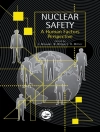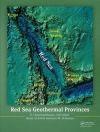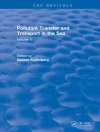In recent years, a greater level of integration of the world economy and an opening of national markets to trade has impacted virtually all areas of society. The process of globalization has the potential to generate long-term benefits for developing countries, including enhanced technology and knowledge transfers and new fina- ing options supporting agricultural and economic development. However, risks of political and economic instability, increased inequality, and losses in agricultural income and production for countries that subsidize their agricultural and other e- nomic sectors threaten to offset potential benefits. Globalization can also have a profound impact on the water sector – in terms of allocation and use of water – and thus on food security as well. Other global change processes, particularly climate change, are also likely to have far-reaching impacts on water and food security, and societies around the world. To discuss these issues in-depth, the International Food Policy Research Institute, the Third World Centre for Water Management, Mexico, and the Tropical Agricultural Research and Higher Education Center (CATIE), Costa Rica, held a three-day International Conference on “Globalization and Trade: Implications for Water and Food Security, ” at CATIE’s Turrialba, Costa Rica, headquarters under the auspices of the CGIAR Challenge Program on Water and Food in 2005. The workshop set out to identify the major risks and emerging issues facing developing countries related to global economic and environmental change impacts on water and food security.
Tabela de Conteúdo
Water for Food Security Under Growing Scarcity.- Water and Food Security Under Global Change.- Global Water and Food Security: Megatrends and Emerging Issues.- Implications of Global Climatic Change on Water and Food Security.- Biofuels, Food Security, and the Environment: A 2020/2050 Perspective.- Trade for Water and Food Security-Help or Harm for the Poor?.- Implications of Globalization and Trade for Water Quality in Transboundary Rivers.- Failure of the Virtual Water Argument: Possible Explanations Using the Case Study of Mexico and NAFTA.- Globalization and Fisheries: Welfare Implications of Export Trade in Asia.- How to Finance Water for the Poor in a Globalized World.- Global Trends in Financing Water.- Private-Sector Participation in Water and Sanitation Services: The Answer to Public Sector Failures?.- Mobilizing Investment for Municipal Water Supply Services.- Water, Water Services and International Investment Agreements.- Conclusions.- Global Change: Options for Reform.












